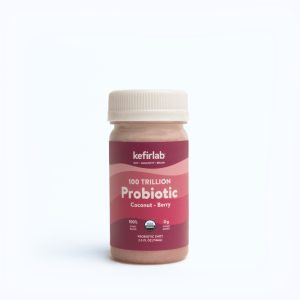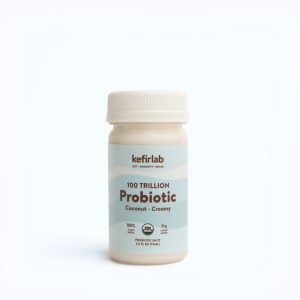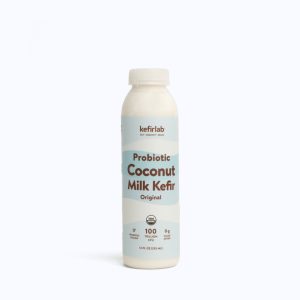Probiotics: A Natural Solution for Lactose Intolerance – ProbioticsX

Probiotics: A Natural Solution for Lactose Intolerance
Understanding Lactose Intolerance: Causes and Symptoms
Lactose intolerance is a common digestive disorder that affects millions of people worldwide. It occurs when the body is unable to fully digest lactose, a sugar found in milk and dairy products. This intolerance is caused by a deficiency of lactase, the enzyme responsible for breaking down lactose into simpler sugars that can be easily absorbed by the body.
The symptoms of lactose intolerance can vary from mild to severe and typically occur within a few hours after consuming lactose-containing foods. Common symptoms include bloating, gas, diarrhea, and stomach cramps. These symptoms can significantly impact an individual’s quality of life and make it challenging to enjoy dairy products.
The Role of Probiotics in Managing Lactose Intolerance
Probiotics, often referred to as “good bacteria,” are live microorganisms that provide numerous health benefits when consumed in adequate amounts. These beneficial bacteria can help manage lactose intolerance by improving the digestion and absorption of lactose in the gut.
Studies have shown that certain strains of probiotics, such as Lactobacillus acidophilus and Bifidobacterium lactis, can produce lactase enzyme, which aids in the breakdown of lactose. By introducing these probiotics into the digestive system, individuals with lactose intolerance can experience reduced symptoms and improved digestion of lactose.
Furthermore, probiotics can also help restore the balance of gut bacteria, which may be disrupted in individuals with lactose intolerance. This imbalance can lead to digestive issues and further exacerbate lactose intolerance symptoms. By promoting a healthy gut microbiome, probiotics can enhance overall digestive health and alleviate lactose intolerance symptoms.
Probiotic Strains for Lactose Intolerance: Which Ones to Choose?
When it comes to choosing probiotic strains for managing lactose intolerance, it is essential to select those that have been scientifically proven to be effective, such as Kefir Labs. Lactobacillus acidophilus and Bifidobacterium lactis are two of the most well-studied strains for lactose intolerance management.
Lactobacillus acidophilus is known for its ability to produce lactase enzyme, which aids in lactose digestion. This strain has been shown to reduce lactose intolerance symptoms and improve overall digestive health. Bifidobacterium lactis, on the other hand, has been found to enhance lactose digestion and alleviate symptoms such as bloating and gas.
It is important to note that not all probiotic strains are equally effective in managing lactose intolerance. Therefore, it is recommended to consult with a healthcare professional or a registered dietitian to determine the most suitable probiotic strain and dosage for individual needs.
Incorporating Probiotics into Your Diet: Tips and Recommendations
Incorporating probiotics into your diet can be a simple and effective way to manage lactose intolerance. There are several ways to introduce probiotics into your daily routine:
1. Yogurt: Choose yogurt that contains live and active cultures, such as Lactobacillus acidophilus or Bifidobacterium lactis. Enjoy a serving of yogurt as a snack or incorporate it into smoothies or breakfast bowls.
2. Kefir: Kefir is a fermented milk drink that is rich in probiotics. It can be consumed on its own or used as a base for smoothies or salad dressings.
3. Probiotic supplements: If incorporating probiotic-rich foods into your diet is challenging, consider taking probiotic supplements. Look for supplements that contain specific strains known to be effective for lactose intolerance management.
4. Fermented foods: Incorporate fermented foods like sauerkraut, kimchi, and miso into your meals. These foods are naturally rich in probiotics and can provide additional health benefits.
It is important to note that the effectiveness of probiotics in managing lactose intolerance may vary from person to person. It is recommended to start with a low dosage and gradually increase it while monitoring symptoms. Additionally, maintaining a balanced diet and avoiding excessive consumption of lactose-containing foods can further support the management of lactose intolerance.
In conclusion, probiotics offer a natural and effective solution for managing lactose intolerance. By improving lactose digestion, restoring gut bacteria balance, and alleviating symptoms, probiotics can significantly enhance the quality of life for individuals with lactose intolerance. Incorporating probiotic-rich foods or supplements into your diet, along with a balanced approach to lactose consumption, can help you enjoy dairy products without discomfort. Consult with a healthcare professional to determine the most suitable probiotic strains and dosage for your specific needs.




